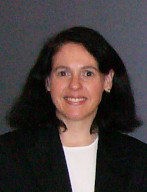
Criminal Penalties for Trafficking in Counterfeit Microelectronics
Patricia E. Campbell [University of Maryland Carey School of Law]
Abstract:
Counterfeit microelectronics have been a persistent problem in government and industry supply chains for many years. Counterfeit electronic parts (e.g., integrated circuits, transistors, capacitors) pose serious risks to human health and safety, harm the economy, and jeopardize national security. Trafficking in counterfeit goods and services was first criminalized by the Trademark Counterfeiting Act of 1984, and Congress has acted on several occasions to increase the penalties for trafficking generally and to create enhanced penalties for trafficking in certain goods (e.g., counterfeit military goods). Industry data demonstrates that the trade in counterfeit microelectronics continues to evolve to meet market demands, and yet relatively few criminal cases have been brought against those who trade in counterfeit electronic parts. While several factors may contribute to this apparent lack of enforcement, the most significant likely involves the circuit split over whether the “material alteration theory” applies in criminal cases. The material alteration theory holds that selling items bearing genuine trademarks constitutes trademark infringement where the items have been materially altered and purchasers are not informed about the alterations. The material alteration theory has been widely accepted in civil actions under the Lanham Act. However, courts are divided over whether selling items that are used but offered as new, are remarked, or are altered in a material way constitutes criminal counterfeiting, if the parts retain the original trademarks applied by their manufacturer. Even in those cases where the Department of Justice obtains a conviction or guilty plea, the sentences that are typically imposed for trafficking in counterfeit goods often amount to little more than a proverbial “slap on the wrist,” resulting in a lack of deterrence. This presentation will suggest that Congress should amend 18 U.S.C. § 2320 to expressly adopt the material alteration theory in cases alleging criminal trademark infringement, thereby protecting the trademark owner’s exclusive right to control the quality of goods sold under its mark. In the absence of such an amendment, Congress should enact special legislation designed to curb the sales of counterfeit electronic parts.
Biography:
 Professor Patricia Campbell joined the Maryland Carey Law faculty in 2007 after spending several years in private practice with law firms and corporations. Immediately prior to her faculty appointment at the law school, she was associate general counsel at Kajeet, Inc., a telecommunications company in Bethesda, Maryland. Her prior experience also included time in private practice as a litigator and transactional attorney with the Fish & Neave IP Group at Ropes & Gray in Palo Alto, California, and Washington, D.C.
Professor Patricia Campbell joined the Maryland Carey Law faculty in 2007 after spending several years in private practice with law firms and corporations. Immediately prior to her faculty appointment at the law school, she was associate general counsel at Kajeet, Inc., a telecommunications company in Bethesda, Maryland. Her prior experience also included time in private practice as a litigator and transactional attorney with the Fish & Neave IP Group at Ropes & Gray in Palo Alto, California, and Washington, D.C.
Professor Campbell teaches courses on patent law, trademarks and unfair competition, and the intersection of intellectual property and antitrust. She also serves as director of the Intellectual Property Law Program and as director of the Maryland Intellectual Property Legal Resource Center and its Intellectual Property and Entrepreneurship Clinic. Professor Campbell’s research interests include issues relating to patent law and inventions created within the university community, as well as anticounterfeiting measures for high-tech electronics and consumer products. She recently completed a research project for the Defense Microelectronics Activity (U.S. Department of Defense), in collaboration with the Center for Advanced Life Cycle Engineering (CALCE) at the University of Maryland, College Park.

Dr. Diganta Das
For more information or questions regarding the technical program (including Professional Development Courses), contact the Conference Chair, Dr. Diganta Das

Kristin Nafstad
For more information or questions regarding event logistics, exhibitions, and sponsorship, contact Kristin Nafstad.
Top